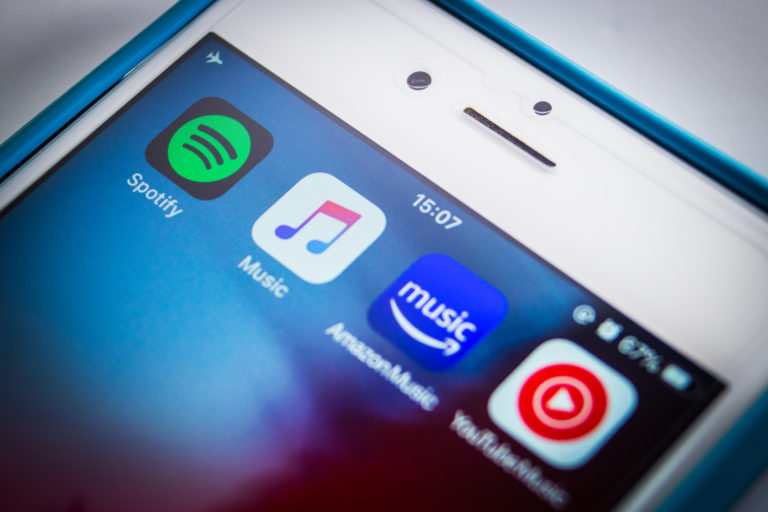Ahead of Record Store Day, which is celebrated on 17th July, the Digital, Culture, Media and Sport (DCMS) Select Committee have published a report into the pitfalls of streaming services for music artists. The report highlights that the pandemic has helped to expose the inequalities that were otherwise hidden in the music industry. As musicians have been restricted from touring and performing live, they have become solely reliant on revenue from recorded music.
This change has meant even successful, world famous artists see ‘pitiful returns’ from streaming. On average, a single stream only amounts to 0.003p for an artist – as you would expect, this creates manifold challenges for those smaller acts, particularly when they’re not able to perform live. Independent artists and artists who work with small record labels do not have the same support and resources as the ‘three big players’. Universal Music Group, Sony Music and Warner Music Group have a share of the UK recording market that is equivalent to 75% and this provides them with major advantages as players in the industry.
In the DCMS Select Committee report, they explain the system through which artists are paid for their plays on streaming services. When using streaming services, performers are paid according to the terms of their record deal and depending on when they started out in their careers, their royalties could range from 20% (for the average modern artist) to as little as 2% for those with historic contracts. Coupled with this, streaming services also take a substantial portion of the cut before it reaches the label to be divided. To put that into context, based on an artist receiving 0.003p per stream, they would need to have 2,907 streams an hour to make basic minimum wage (£8.72).
Thanks to old precedents, the artist, who is an integral part of the record making process, is subjected to a revenue share from streaming that give the label the majority of a track’s revenue. This comes from a model which applied to physical sales, where labels had overheads such as manufacturing, storing and transporting CDs, which are all significantly reduced thanks to streaming services. As times change, and streaming becomes the dominant source for accessing music, this challenge continues to affect artists of all kinds.
In comparison, the ability to self-release music, use social media to gain a following and create music without a professional studio has never been greater. This has opened the door to a whole new world for musicians and unleashed a powerful movement of greater autonomy for new and upcoming artists. However, with greater autonomy, comes a more competitive playing field for artists and record labels to navigate. The sector has become saturated with content and the ever-changing cycle of music means that musicians need to have a regular stream of content, churning out music, social media content, and more, to stay ‘relevant’. This can take up considerable time and resources, and can therefore be difficult to sustain for a small artist or record label.
Looking ahead to combat the issues around streaming and create a more equitable and sustainable industry, the DCMS Select Committee has published five recommendations:
- The Government should enact legislation so performers can enjoy the right to equitable remuneration for streaming income.
- The Government should work with creators and the independent publishing sector to explore ways in which new and upcoming songwriters and composers can be supported to have sustainable careers and independent music publishers remain commercially viable.
- The Government refer a case to the Competition and Markets Authority (CMA), to undertake a full market study into the economic impact of the majors’ dominance. The Government must also provide the CMA with the resources and staffing to undertake this case.
- Where curators are paid or receive benefits in kind for playlisting, we recommend that they are subject to a code of practice developed by the Advertising Standards Authority (similar to social media influencers) to ensure that the decisions they make are transparent and ethical.
- As a priority, the Government should introduce robust and legally enforceable obligations to normalise licensing arrangements for User Generated Content hosting services, to address the market distortions and the music streaming ‘value gap’.
In the meantime however, there is hope on the horizon. With the confirmed relaxation of social distancing restrictions coming on 19th, we hope that venues begin to operate at full capacity and live events are able to return to their former glory. As we have acknowledged, live performances and touring are the main sources of income for many artists, and most will be keen to make a return to the stage, so looking ahead this will be a welcome return, for the audience and the performer!





